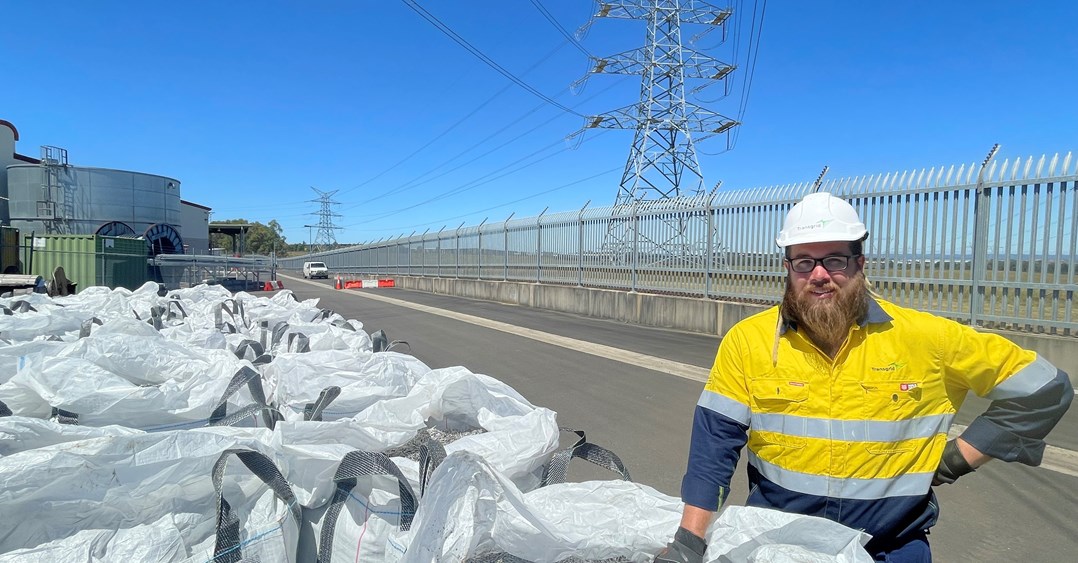Transgrid, the grid operator for the Australian state of New South Wales and Australian Capital Territory (ACT), has partnered with German manufacturer Zeck to use its ZECK AI/Steel Separator (ZAS), an innovative machine that enables the recycling of old transmission lines – providing significant cost and emissions reductions.
The network operator said that prior to the adoption of the ZAS technology, used conductors needed to be shipped overseas for the removal of the outer aluminum layer for recycling. The ZAS machine can do this on site – an innovation which Transgrid claims cuts 90% of the emissions involved in recycling conductors.
Transgrid also forecasts an improved return on its scrap metal recycling of up to AUD 3 million ($2.06 million) over the next three to five years.
By feeding conductors into the ZAS machine under tension, the previously outsourced task of removing the outer aluminum layer is now performed onsite and efficiently, with said aluminum cut into 30 mm to 70 mm pieces for easy smelting. At the other end of the ZAS machine, the undamaged conductor's steel core is wound onto a cable drum, also ready for recycling.
It was one of Transgrid's field coordinators, Mitch Coppock, who first pitched the idea of using the ZAS machine.
“Something like that hasn't been done in Australia before,” said Coppock. “Anything innovative we can do is very important in our industry especially anything that can have good long-term effects on the environment.”
It's an “everyone wins” situation, says Coppock, as Transgrid can get a return on its scrap metal three times higher than before, while “the environment wins with reduced emissions and local businesses benefit too as they get readily available and processed aluminum.”
The trial has already seen 40 km of conductors processed through the ZAS machine in Sydney, with each meter of conductor yielding approximately a kilogram of aluminum.
It has been a period of firsts for the network operator, which recently began trialing its first electric pickup truck among a 400-strong diesel vehicle fleet.
This content is protected by copyright and may not be reused. If you want to cooperate with us and would like to reuse some of our content, please contact: editors@pv-magazine.com.




By submitting this form you agree to pv magazine using your data for the purposes of publishing your comment.
Your personal data will only be disclosed or otherwise transmitted to third parties for the purposes of spam filtering or if this is necessary for technical maintenance of the website. Any other transfer to third parties will not take place unless this is justified on the basis of applicable data protection regulations or if pv magazine is legally obliged to do so.
You may revoke this consent at any time with effect for the future, in which case your personal data will be deleted immediately. Otherwise, your data will be deleted if pv magazine has processed your request or the purpose of data storage is fulfilled.
Further information on data privacy can be found in our Data Protection Policy.